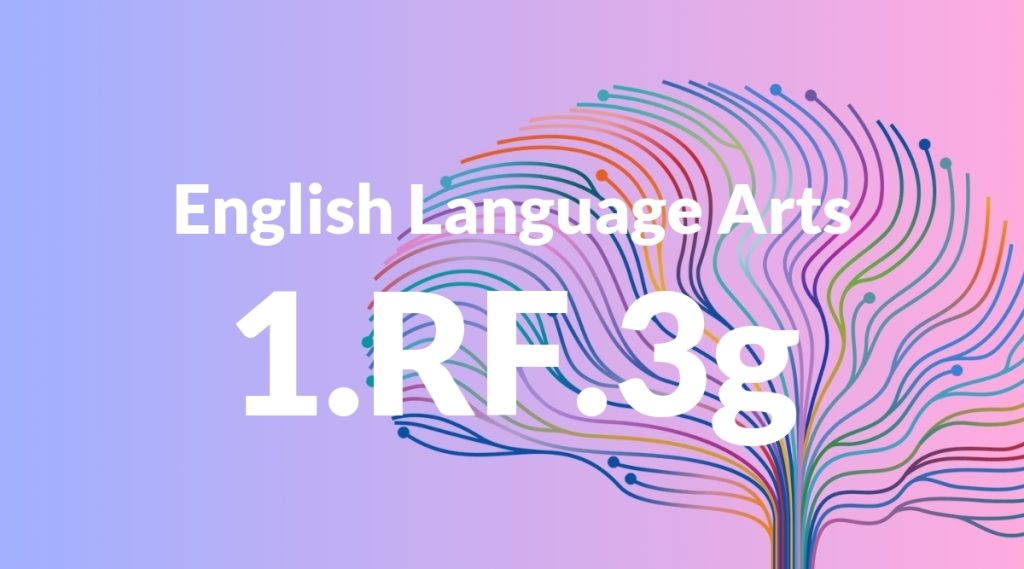Standard: 1.RF.3g – Recognize and read grade-appropriate irregularly spelled words.
Grade level: Grade 1
Subject: English Language Arts
Domain: Reading: Foundational Skills
Teacher Overview
This standard focuses on helping students recognize and read irregularly spelled words that do not follow typical phonics rules. Mastering this skill is crucial for reading fluency and comprehension, as many common English words are irregularly spelled. Students should have a solid understanding of basic phonics and the ability to decode regular words before tackling irregularly spelled words.
After mastering this standard, students will be able to read more complex texts with greater fluency and comprehension, recognizing a larger vocabulary of irregularly spelled words.
Common Misconception 1
A common misconception is that all words can be sounded out using regular phonics rules. This is incorrect because many common words in English do not follow these rules and must be memorized as sight words.
Intervention 1
To address this misconception, introduce high-frequency sight words that do not follow regular phonics rules. Use repetitive reading, visual aids, and engaging activities to reinforce recognition.
Common Misconception 2
Another misconception is that students may confuse irregularly spelled words with similarly spelled regular words. This confusion can hinder reading fluency and comprehension.
Intervention 2
To remediate this, use visual and contextual clues to help students differentiate between irregularly spelled words and similar regular words. Provide ample practice in reading these words within meaningful contexts.
Prerequisite Knowledge
Students should be familiar with basic phonics, including common letter-sound correspondences and the ability to decode simple, regular words.
Subsequent Knowledge
Students will develop the ability to read more complex texts with increased fluency and comprehension, including the recognition of a larger vocabulary of irregularly spelled words.
Instructional Activities
- Flashcard games with irregularly spelled words.
- Reading aloud from books containing high-frequency sight words.
- Writing simple sentences using irregularly spelled words.
- Interactive word matching activities.




